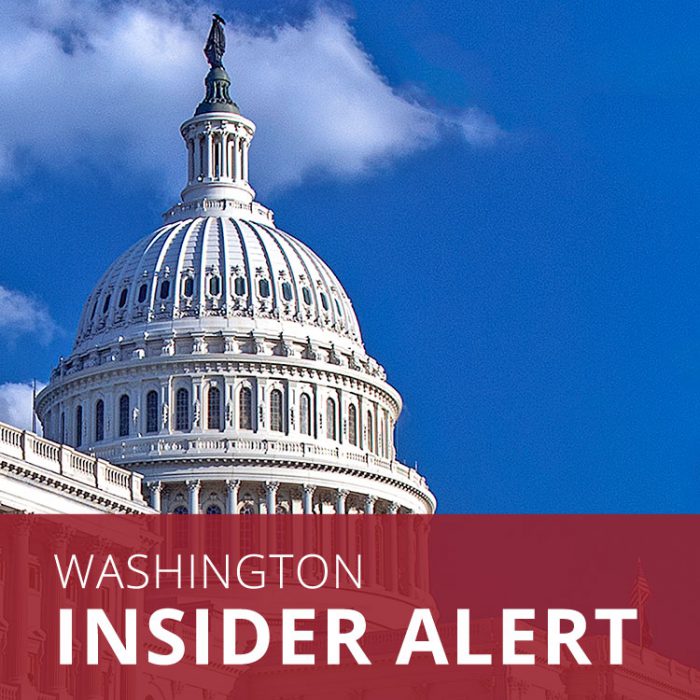Supreme Court Issues Decision Impacting Public Employees’ Rights Regarding Their Union
 June 27, 2018 (WASHINGTON INSIDER ALERT) - Today, the Supreme Court issued its long-awaited decision in Janus v. American Federation of State, County, and Municipal Employees, Council 31. At question in the case is whether compelling nonunion public employees to pay collective bargaining fees violates the First Amendment. In a 5-4 decision, the Supreme Court decided that forcing nonunion public employees to pay collective bargaining fees does in fact violate the First Amendment.
June 27, 2018 (WASHINGTON INSIDER ALERT) - Today, the Supreme Court issued its long-awaited decision in Janus v. American Federation of State, County, and Municipal Employees, Council 31. At question in the case is whether compelling nonunion public employees to pay collective bargaining fees violates the First Amendment. In a 5-4 decision, the Supreme Court decided that forcing nonunion public employees to pay collective bargaining fees does in fact violate the First Amendment.
In an opinion by Justice Alito, the court’s conservative majority ruled that forced collection of agency fees “violates the free speech rights of nonmembers by compelling them to subsidize private speech on matters of substantial public concern.” The dissent, led by Justice Kagan, and joined by the other liberal justices, states that the majority’s “decision will have large-scale consequences [for] public employee unions [which] will lose a secure source of financial support ... [and that] there are no special justifications for reversing Abood.”
Janus is a challenge to the Supreme Court’s 1977 decision in Abood v. Detroit Board of Education, which upheld a union’s ability to compel nonunion employees to pay collective bargaining costs, sometimes referred to as “fair share” or “agency” fees. The 1977 decision held that these fees are permissible insofar as they “are used to finance expenditures by the union for collective bargaining, contract administration and grievance adjustment purposes,” but that unions cannot charge nonunion employees for political or other ideological activities.
The petitioner in Janus, a child support specialist at the Illinois Department of Healthcare and Family Services, disagrees with the union’s bargaining positions and alleged that as such, his responsibility to pay the fees as a condition of employment is a violation of his rights under the First Amendment. In today’s decision, the Supreme Court overruled Abood stating that, “Abood was poorly reasoned ... has led to practical problems and abuse ... [and] is inconsistent with other First Amendment cases and [does not] justify the perpetuation of the free speech violations that Abood has countenanced for the past 41 years.”
Oral arguments before the Supreme Court were heard on February 26. The Court previously heard arguments on the question in Janus in Friedrichs v. California Teachers Association in 2016 but was deadlocked on the issue as a result of the death of Justice Antonin Scalia.
